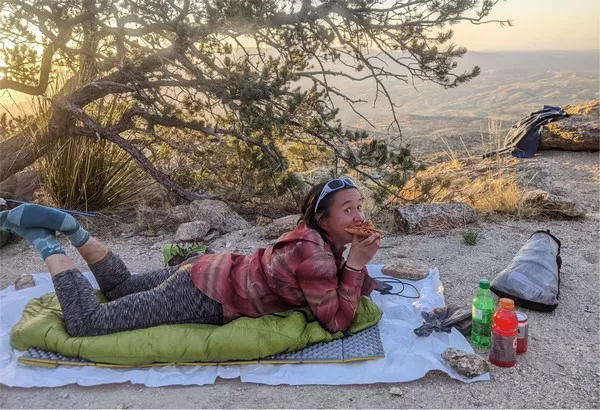Cowboy camping, the practice of sleeping under the stars without a tent, has a romantic allure that appeals to many outdoor enthusiasts. Picture yourself nestled in your sleeping bag, gazing up at a sky filled with twinkling stars, feeling at one with nature. However, as idyllic as it sounds, cowboy camping also raises concerns about safety. Is it truly safe to forego the protection of a tent and sleep directly under the open sky? In this article, we will delve into the risks and rewards of cowboy camping to help you make an informed decision about whether it’s the right choice for your outdoor adventures.
Understanding Cowboy Camping
Before we discuss the safety aspects of cowboy camping, let’s first understand what it entails. Cowboy camping involves sleeping outdoors without the shelter of a tent. Instead, campers rely solely on their sleeping bags or other portable bedding to protect them from the elements. This minimalist approach to camping offers a closer connection to nature and a sense of freedom that many find exhilarating.
The Rewards of Cowboy Camping
One of the primary reasons people choose cowboy camping is the unparalleled experience it offers. There’s nothing quite like falling asleep under a canopy of stars, listening to the sounds of the wilderness around you. Cowboy camping allows you to fully immerse yourself in the outdoor environment, providing a sense of tranquility and connection that is hard to replicate within the confines of a tent.
Moreover, cowboy camping can be incredibly liberating. Without the need to set up and dismantle a tent, campers can enjoy greater flexibility and spontaneity in their outdoor adventures. It’s a simpler, more stripped-down approach to camping that appeals to those who crave a more authentic outdoor experience.
Additionally, cowboy camping can be practical in certain situations. For ultralight backpackers or those embarking on long-distance hikes, carrying a tent may not be feasible due to weight or space constraints. In such cases, cowboy camping offers a lightweight alternative that allows travelers to cover more ground with less gear.
Assessing the Risks
While cowboy camping offers many rewards, it’s not without its risks. Perhaps the most significant concern is exposure to the elements. Without the protection of a tent, campers are more vulnerable to inclement weather conditions such as rain, wind, and extreme temperatures. In colder climates, this can pose a serious risk of hypothermia, especially if proper insulation and bedding are not utilized.
Furthermore, sleeping without a tent leaves campers exposed to potential wildlife encounters. While the likelihood of an attack is low in most areas, certain regions are home to predators such as bears or mountain lions that may pose a threat, particularly if attracted by food smells or other factors. Additionally, smaller animals like rodents or insects can be a nuisance or carry diseases, increasing the risk of bites or exposure to pathogens.
Another consideration is the risk of injury. Without the protection of a tent, campers are more susceptible to falls, trips, or other accidents during the night. Uneven terrain, protruding rocks, or branches can pose hazards, especially in the dark when visibility is limited.
Mitigating the Risks
Despite the potential risks, there are steps campers can take to mitigate the dangers of cowboy camping and ensure a safer experience. First and foremost, proper preparation is essential. Researching the area you plan to camp in, including potential wildlife hazards and weather patterns, can help you anticipate and address potential risks before they arise.
Investing in high-quality gear is also crucial. While cowboy camping may eschew the use of a tent, campers should still pack adequate bedding, such as a warm sleeping bag and insulated sleeping pad, to protect against cold temperatures. Additionally, a lightweight tarp or bivy sack can offer some protection from rain and wind without the bulk of a traditional tent.
Practicing proper wilderness etiquette is another key aspect of staying safe while cowboy camping. This includes properly storing food to prevent attracting wildlife, adhering to Leave No Trace principles to minimize environmental impact, and respecting local regulations and guidelines.
Finally, maintaining situational awareness is essential. Pay attention to your surroundings, especially at night, and be prepared to respond appropriately to any potential threats or hazards that may arise. Trust your instincts and err on the side of caution if you feel uncomfortable or unsafe in any situation.
Conclusion
In conclusion, cowboy camping can offer a unique and rewarding outdoor experience for those willing to embrace its challenges. However, it’s essential to recognize and mitigate the inherent risks associated with sleeping without the protection of a tent. By taking proper precautions, including thorough preparation, investing in quality gear, and practicing wilderness etiquette, campers can enjoy the beauty and freedom of cowboy camping while minimizing the potential dangers. Ultimately, whether cowboy camping is safe for you depends on your level of experience, comfort with risk, and willingness to adapt to the uncertainties of the wilderness.

